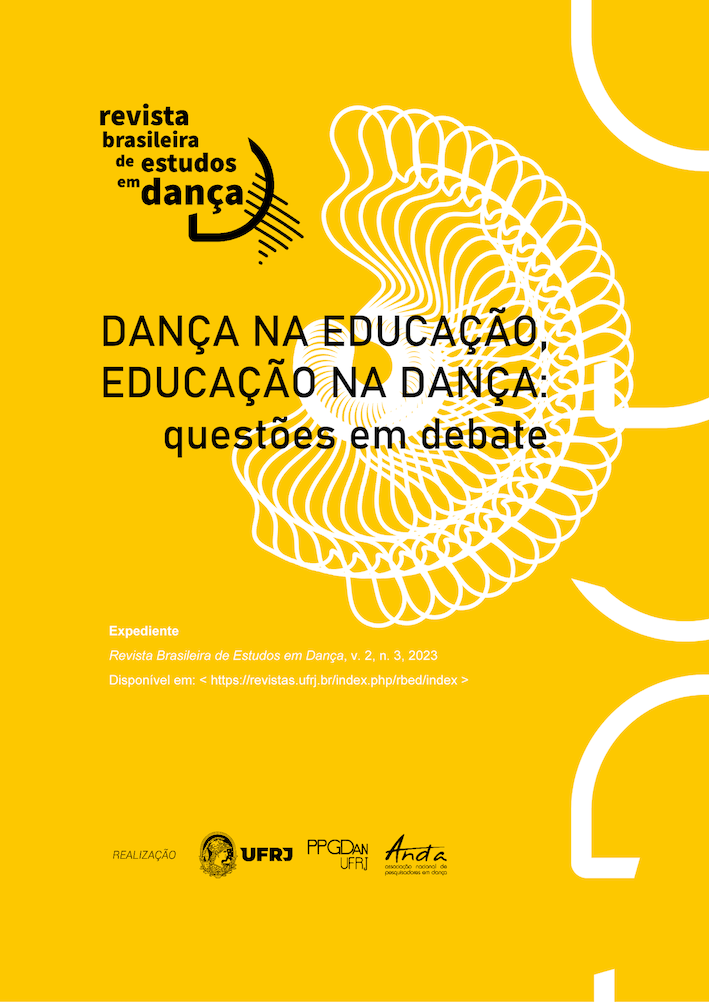About creating and researching collectively:
formative processes woven in solidarity
DOI:
https://doi.org/10.58786/rbed.2023.v1.n3.59050Keywords:
Processos formativos, Criação, Coletivo, Dança, PesquisaAbstract
Research as a formative process has been forged and moved in the face of the logic of separate and rival individualities. To find a different path, as researchers of the body, art and education, we have insisted on experiences of collective creation and research. In this experience report, we present one of these sharing practices that have constituted the research group to which we belong, linked to a Brazilian public university. The experience brings together five researchers interested in the fields of the body, dance, education and art, at different points in their research. For this elaboration, three of us mobilised to share what we had experienced, presenting traces of the research that gave rise to the proposal for the "Pe(n)sar a pesquisa" mini-residency and then reporting on its happening and reflecting on its resonances. It was possible to recognise the importance of the collective in formative and creative processes in research that wants to weave solidarity
Published
Versions
- 2024-05-09 (3)
- 2023-12-01 (2)
- 2023-09-02 (1)
How to Cite
Issue
Section
License
Authors who publish in the Revista Brasileira de Estudos em Dança are
responsible for the content of signed articles and retain copyright.
They grant the journal the right of first publication with the work simultaneously
licensed under the Creative Commons Attribution-NonCommercial 4.0 License
(Open Archives Initiative - OAI). This feature, used for open-access journals,
allows sharing work for non-commercial purposes and acknowledges
authorship. If the text is later published in another vehicle, the author
must inform that it was initially published as an article in the Revista Brasileira
de Estudos em Dança. Therefore, even if the journal owns the first publication,
authors are entitled to publish their work in institutional repositories or on
their personal pages, even if the editorial process has not been completed.
The journal reserves the right to make normative, orthographic, and grammatical changes to maintain the language standard, respecting the authorial style.

